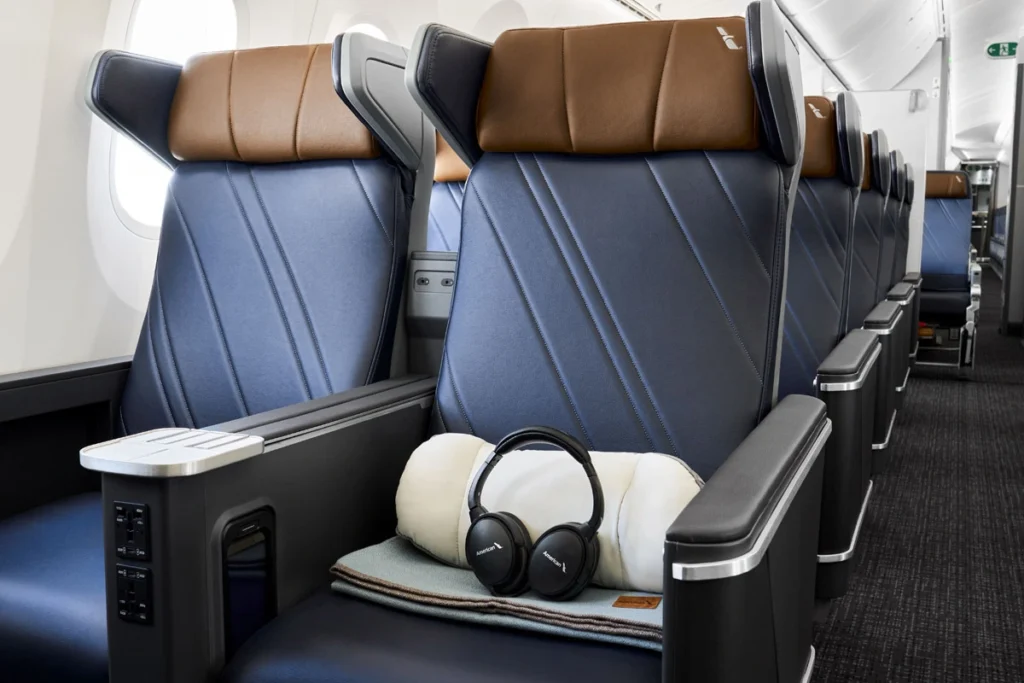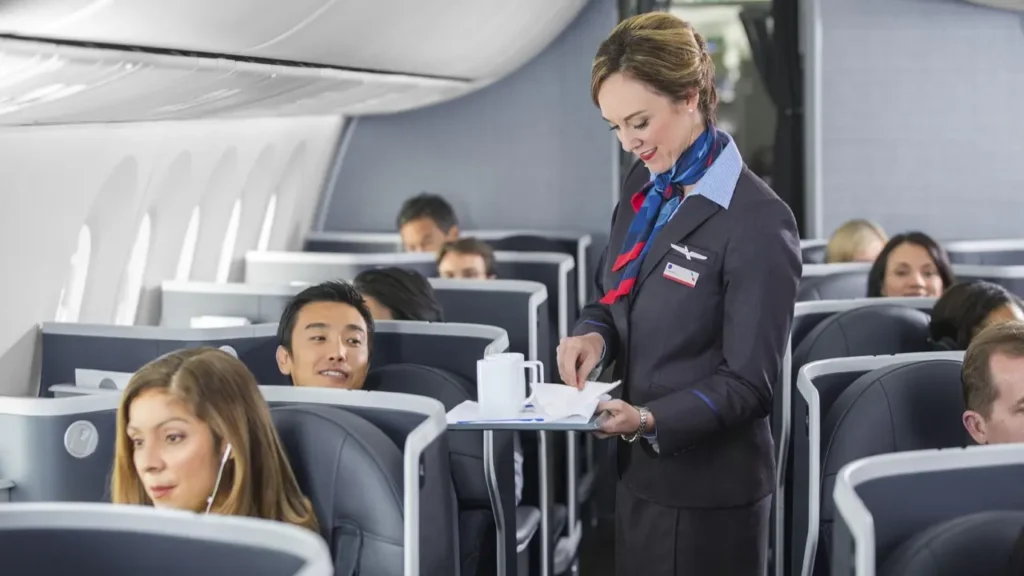BOSTON- A black first-class passenger traveling with American Airlines (AA) from Boston Logan International Airport (BOS) to Miami International Airport (MIA) on May 3, 2025, has sparked widespread debate after alleging she was the only person in the premium cabin not served a meal.
The video, originally posted on TikTok, has since gone viral, garnering over 10 million views across social platforms.
The passenger, a Boston-based influencer, stated she received no meal at all—despite being awake and having booked her ticket five days in advance, OMAAT flagged.

American Airlines Passenger Denied Meal
The incident occurred aboard a domestic first-class flight on a Boeing 737 operating a high-traffic route.
The passenger emphasized that she was neither offered a meal choice nor given any explanation. Instead, she was served only drinks while every other visible first-class passenger received a full meal service.
In her public video, she highlighted her disbelief, stating she hadn’t eaten all day in anticipation of the in-flight meal. She expressed frustration not only at being skipped but also at the lack of communication from the flight crew. This silence from airline staff added to her confusion and concern, prompting questions around both operational failures and possible racial bias.
The carrier has a known history of service inconsistencies, and this event adds to broader scrutiny around its customer experience, particularly for Black travelers.

Aviation experts suggest several plausible operational explanations. Airlines generally cater meals based on the exact number of first-class seats sold. However, catering issues can arise due to:
- Last-minute aircraft swaps or gate changes
- Errors from the catering company (underloading meals)
- Flight attendants accidentally dropping meals
- Quality control rejections during final checks
The seat assignment of the passenger—reportedly in the last row of the first-class cabin—may also be relevant. Meal service is often prioritized for those who pre-select options or are seated at the front of the cabin. If others had pre-ordered meals, her position in the order queue could explain the omission—though not the lack of any verbal acknowledgment or apology.
Addressing the Race Factor
While no direct evidence confirms racial bias, the passenger’s concern cannot be dismissed. In previous incidents, American Airlines (AA) has faced backlash for discriminatory treatment, including a public case where multiple Black men were removed from a flight due to a complaint about body odor.
This historical context has amplified public reaction to the current incident. Commenters online have debated whether this was a singular failure of communication and logistics or part of a broader pattern of unequal treatment. Regardless, aviation professionals and passengers alike agree that basic courtesy—an explanation and apology—was warranted.

Industry Response
The airline industry frequently deals with logistical mishaps, but the best practice involves transparent and empathetic communication, as reported by ViewfromtheWing. Flight attendants are trained to acknowledge service issues, offer alternatives when available, and file reports for follow-up action.
On flights under 1,300 miles, such as BOS–MIA, economy passengers typically do not receive complimentary meals. However, premium passengers expect consistent service. When catering errors occur, acknowledging the oversight and offering snacks or bonus miles are standard compensatory gestures.
According to internal airline documents, American has previously experienced catering issues on flights departing from Chicago and Philadelphia hubs, prompting the company to issue guidance to crew members about proper handling of such situations. Yet, as this case shows, policy adherence remains inconsistent.
Stay tuned with us. Further, follow us on social media for the latest updates.
Join us on Telegram Group for the Latest Aviation Updates. Subsequently, follow us on Google News

